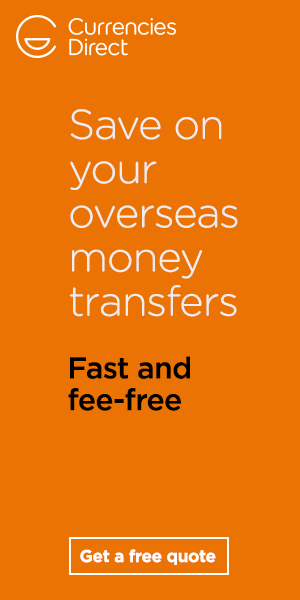Amazon Payments
INTERNATIONAL MONEY TRANSFER SOLUTIONS FOR AMAZON SELLERS
 How to manage international payments as an Amazon seller and why creating a dedicated business account with an international money transfer provider is a smarter way forward than putting up with Amazon’s weak exchange rates.
How to manage international payments as an Amazon seller and why creating a dedicated business account with an international money transfer provider is a smarter way forward than putting up with Amazon’s weak exchange rates.
If you sell your products on Amazon via its Marketplace, you’ll be selling to people all over the world, opening up a much larger customer base. Selling products via Amazon can be a great way to make extra revenue for your business, and platforms like Amazon help make this possible.
On Amazon, because you can sell products to customers in many different countries, you’ll need a way to manage the international payments for both outgoing business payments and the settlement of earning income from overseas sales. This includes foreign transaction costs and currency conversion exchange rates as Amazon’s exchange rate fees are typically a whopping 4% of the transaction amount and can take up to 14 days to arrive into your business bank account.
Amazon Global Sellers – Foreign Exchange Rates
Factor in the foreign exchange rate. The better the exchange rate, the less money you’ll lose when receiving or sending international payments. Banks and online marketplaces like Amazon typically offer poor currency exchange rates (typically 4%) whilst dedicated online money transfer providers are much more competitive.
If you’re an Amazon global seller, your sales are taking place in foreign currencies. When you want to bring your money home, you need a way to exchange your profits from foreign marketplaces into your local currency. That always involves paying fees. Unfortunately, you could be paying top rates if you’re using Amazon Currency Converter. The currency converter built into Amazon works conveniently to exchange your money into your local currency, but it also costs an arm and a leg when compared to more competitive foreign exchange rates.
If you’re using Amazon Currency Converter, start by knowing that you are paying a fee. It’s just that the fee is added to the exchange rate, so you don’t see it. According to the Amazon Seller Central page on currency fees “All fees and charges related to your use of Amazon Currency Converter for Sellers are included in the exchange rate.”
You’ll be paying an estimated 4% each time you exchange on Amazon Currency Converter and even though Amazon’s rates are comparatively high, it doesn’t mean you’ll get a better deal from a traditional bank.
Best Way to Manage International Payments from Amazon?
Selling on Amazon is great as it allows you to reach customers from all over the world. However, along with international customers come international currencies, which isn’t as great.
For example: If someone from New York buys one of your products, they’ll pay you in US dollars (USD) which will then be converted into British pounds (GBP). You could get stung by high fees for this, plus lose money due to poor exchange rates.
You could try to open a bank account in New York, but trying to open an account overseas yourself can be challenging without a local residential address.
Receiving Overseas Amazon Payments to a UK Business Bank Account
It’s worth checking with your bank to see whether you’re able to receive foreign currency payments directly to your existing GBP account. Many banks offer this service. However, be aware that they typically charge a transaction fee each time an overseas buyer transfers money to your account. The payment may also pass through one or more intermediary banks on the way to your account, meaning additional fees and charges.
Another issue to be wary of is the exchange rate that will be applied to the funds upon reaching your account. Generally, banks will apply whatever exchange rate they’re offering on that particular currency at the time they process the transaction. Depending on how that currency is performing at the time, this may result in a poorer exchange rate, meaning fewer funds in your account once all is said and done. The intermediary banks through which the transaction passes may also carry out currency conversions, resulting in additional losses.
Receiving Overseas Amazon Payments to a UK Business Multi-Currency Bank Account
Another option for receiving foreign currency funds is to open a multi-currency account. This is an account offered by a bank specifically designed for individuals who regularly transact in a foreign currency. The transaction fee for these accounts to receive foreign currency may be substantially reduced compared to a standard bank account.
Business Account from a Specialist Money Transfer Provider
Another solution is to opt for a dedicated business account with a international money transfer provider. These accounts open up local bank accounts in the international market you’ll be selling to, so you’ll have an account overseas that you can use to receive local currency.
For example: A business account offered by Currencies Direct comes with local receiving bank accounts in Europe, America, the United Kingdom and several other countries. Using Currencies Direct and their collection account allows online sellers to save every time they convert sales from marketplaces without the hassle of opening local bank accounts in the countries they sell to.
Currencies Direct are an approved Amazon Payment Service Provider (PSP) allowing them to offer bespoke services to Amazon sellers. Their digitally secure collection account certificates are also recognised by Amazon for seamless seller account verification (SAV) and their range of products allow businesses to decide when funds are converted and save time with automated transfers.
How Smart Amazon Sellers Save on Currency Exchange
So, if you sell a product to a customer in New York, you’ll get paid in the local currency (US dollars) into your local receiving account. Your money can stay in the local receiving account while you keep an eye on the exchange rates. Currency exchange rates fluctuate daily or even more than that, and transferring your funds back into British pounds when the exchange rate is stronger can potentially save you a lot of money.
Control When to Bring Your Money Back Home
When you receive payments in your international bank account, there’s no hurry to transfer it back to the UK. Since you control when to bring your money back home, you can keep an eye on the exchange rates and transfer your currency into your main business account when the exchange rates are more favourable.
Also, a business account provided by a dedicated international money transfer provider typically doesn’t charge a fee to receive money into your local account or to send it back into your local currency. Instead, the company makes its money by charging a slight commission on the exchange rate (typically 0.7%).
Simplifying Business Payments & Save Money Too..
A business account is going to simplify handling international payments for your company. If many of your business transactions are taking place overseas and you’re losing a fortune in profits to foreign exchange costs, you should consider the benefits of a business account through a dedicated money transfer company. Find out more about Currencies Direct and open a free business account, there’s no obligation to trade – click here to visit their website

